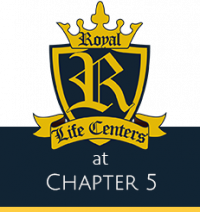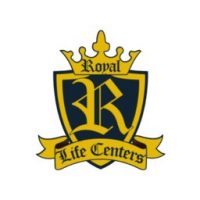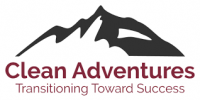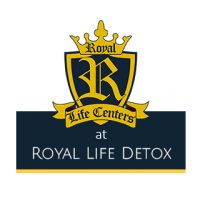Wolf Creek Recovery Drug and Alcohol Treatment
Drug Rehab Center in Prescott, Arizona
Wolf Creek Recovery Drug and Alcohol Treatment is an accredited addiction treatment facility in Prescott, AZ with a capacity of 20 beds, providing evidence-based individualized care and treatment for alcoholism, substance abuse, drug addiction, and mental health issues.
About This Arizona Facility
Wolf Creek Recovery Drug and Alcohol Treatment, located in Prescott, Arizona, is dedicated to helping adults overcome addiction with a unique focus on 12-Step programs and co-occurring mental health challenges. Offering 20 beds, this facility provides a variety of outpatient treatment options, including partial hospitalization (PHP), intensive outpatient (IOP), general outpatient (OP), and aftercare programs, ensuring a comprehensive approach to recovery. The center is known for its three-phase model that effectively supports clients through their journey to sobriety.
With LegitScript accreditation, Wolf Creek Recovery assures high standards of care and ethical practices in treating drug and alcohol addiction. This facility accepts most major insurance providers, making its evidence-based therapies and comprehensive care plans accessible to many. Treatment emphasizes personalized recovery strategies, integrating medical and mental health assessments to craft tailored care plans for each client.
- Specializes in treating co-occurring addiction and mental illness, offering a holistic approach to recovery.
- Offers a continuum of care that includes innovative treatments like EMDR, outdoor therapy, and creative arts therapy.
- Aftercare programs provide sustained support, including 12-Step facilitation and peer coaching, to promote long-term sobriety.
Specifically, Wolf Creek Recovery treats addictions to alcohol, substances, and addresses drug addiction alongside mental health issues. Treatment methods encompass a broad spectrum, including cognitive behavioral therapy (CBT), dialectical behavioral therapy (DBT), eye movement desensitization, and reprocessing (EMDR), among others. Levels of care provided are PHP, IOP, OP, and aftercare, designed to meet individuals wherever they are in their recovery process.
Genders
Ages
Modality
Additional
Accreditations

LegitScript
Conditions and Issues Treated
Substance abuse is defined by the continued use of drugs or alcohol despite negative consequences, such as legal or work problems. It can be treated using a variety of services, including therapy and medication.
Substance abuse treatment is beneficial for:
- People who have been using drugs or alcohol for a long time.
- People who have been using drugs or alcohol to cope with stress, anxiety, or depression.
- People who have a mental health disorder in conjunction with substance abuse.
- People who continue to use drugs or alcohol despite the harmful effects they cause on their own life and the lives of others.
- People who have had multiple failed attempts at recovery without medical assistance.
If you believe that addiction treatment is right for you or a loved one, you can contact your primary care physician, or search for addiction treatment centers in your area. Treatment is beneficial to people who are motivated towards recovery, and who understand the benefits of professional care.
Levels of Care Offered at Wolf Creek Recovery Drug and Alcohol Treatment
This center offers a variety of custom treatment tailored to individual recovery. Currently available are Detox, Inpatient, Outpatient, with additional therapies available as listed below.
Detox is the stage of recovery where the drugs or alcohol are entirely removed from your body. There are two different ways to detox, with medications and without. For many drugs and alcohol, the acute phase of detox can be completed in a number of days.
Inpatient treatment is the most intensive level of care, and it’s necessary for those who aren’t able to control their addiction. These patients also must be drug-free before attending inpatient programs .
During inpatient treatment, addicts live at an inpatient facility 24 hours a day while receiving help. This type of program is generally recommended for those who need to go through detoxification or who are struggling with serious addiction-related issues.
The outpatient programs in Prescott, AZ are for those addicted drugs or alcohol. The goal of the outpatient rehabilitation program is to make them stop abusing drugs or alcohol, reduce drug use or addictive behaviors, and become entirely sober. It is generally required to attend the outpatient program for 10-12 hours every week.
Patients can be administered on-the-spot medication to ease withdrawal symptoms such as anxiety, increased heart rate, and even depression. Groups such as Alcoholics Anonymous (AA) and Narcotics Anonymous (NA) can be used as a part of outpatient treatment to help maintain sobriety.
Therapies & Programs
People in addiction recovery can benefit from individual therapy. This type of therapy involves meeting with a therapist one-on-one. This allows for a personal and trusting relationship to be built so that the patient can be truly themselves and express any emotions they feel. Individual therapy leads to greater understanding and peace about your triggers for addiction and coping strategies to prevent relapse.
Family therapy is a type of group problem-solving that aims to improve communication and relationships between the patient, their family, and sometimes friends. The main goal of family therapy for drug addiction is to create an environment where communication can occur without judgment, hostility, or blame. The therapist is with the family as they learn to communicate with each other differently, especially with the addict when s/he is using.
Group therapy sessions are held in rehab facilities, clinics, churches or community centers that offer drug addiction treatment. People who attend these groups are encouraged to voice their feelings and support other addicts in recovery. This helps group members strengthen their own recovery program while cheering on others who are struggling with sobriety.
Group therapy sessions provide recovering addicts with a chance to cope with everyday situations that many face. Group therapy sessions are held in rehab facilities, clinics, churches or community centers that offer drug addiction treatment.
People who attend these groups are encouraged to voice their feelings and support other addicts in recovery. This helps group members strengthen their own recovery program while cheering on others who are struggling with sobriety.
Dialectical Behavior Therapy (DBT) is a form of cognitive-behavioral therapy that helps people understand how they connect their thoughts, behaviors, and feelings. It can give them more control over their actions, effectively stopping self-harm ideations and attempts in some patients. It also helps put those with borderline personality disorder into control for managing mental struggles.
A new study has shown that DBT works for those with self-harm behaviors and addictions by giving them therapy they can relate to and understand.
Cognitive Behavioral Therapy (CBT) helps addicts identify faulty, negative thinking so that they can work together with the therapist to find healthier ways of thinking. CBT focuses on specific aspects of each person’s thinking, feeling, physiology, and behavior. It aims to identify specific problems in these areas, and create a personalized treatment strategy.
Eye Movement Desensitization and Reprocessing (EMDR) is an integrative psychotherapy approach that has been extensively studied and proven effective for treating trauma. EMDR sessions typically last 50-90 minutes and can be completed in as little as 12-15 sessions. EMDR is a goal-directed therapy in which the client works with the therapist to develop an individualized treatment plan that focuses on specific trauma memories and associated disturbance.
12-Step Program is used by drug treatment centers to get addicts sober. The treatment is outlined by Alcoholics Anonymous and Narcotics Anonymous books which detail the steps drug users need to take in order to get sober. The program is often used as a part of an inpatient or outpatient treatment program and is frequently recommended by doctors.
The 12 steps typically begin with addicts admitting they need help. They are then guided through the steps by a sponsor, someone who has already struggled to get sober themselves. They will work through physical withdrawal symptoms, identify the problems that led to their addiction and learn how to resist cravings.
Addicts often experience intense cravings for sugary foods during recovery. By teaching addicts how to eat well and stay healthy, therapists can help them manage their cravings over the course of treatment.
During these sessions, Prescott, Arizona dietitians and therapists will offer advice about healthy eating options and teach addicts how to make specific changes in their diet that can help reduce the effects of cravings during recovery.This type of therapy is often used in conjunction with other types of addiction treatment services. By identifying specific triggers and developing strategies to help addicts avoid relapse, most individuals can overcome their cravings and stay sober for good after they finish rehab.
The first step to becoming a non-smoker is the choice to quit smoking. Nicotine replacement therapies are effective because they provide you with the nicotine you are addicted to without inhaling carcinogens from cigarettes.
There are several types of NRT. These include:
- Nicotine gum
- Nicotine patches (transdermal systems)
- Nasal spray
- Lozenges
The benefits to using NRT can include:
- Reduce the risk of heart disease and cancer
- Reduce the anxiety and irritability associated with quitting smoking
- Reduce the risk of type II diabetes.
- Improved fertility in women
Patient Experience
Creative Arts
Creative Arts Therapy is a treatment method for patients of Wolf Creek Recovery Drug and Alcohol Treatment in Prescott, Arizona who are victims of addiction to drugs, alcohol, or other substances. Group Creative Arts Therapy sessions help addicts get sober by allowing them to meet and talk with peers who are going through the same problems. This builds trust and helps addicts understand that they are not alone. Depending on the severity of the patient’s drug or alcohol problem, they may attend group creative art therapy sessions or individual sessions.Experiential Therapy at Wolf Creek Recovery Drug and Alcohol Treatment
Experiential Therapy allows addicts to release emotions in a safe environment. The process involves addicts painting their feelings and releasing them on a canvas. LPE – Love, Peace, and Equilibrium is one of the most popular forms of experiential therapy.
Fitness Therapy
Fitness therapy is beneficial in drug treatment programs. It provides an alternate coping mechanism for stress, a new outlook on life, and a sense of community and involvement (NIDA, 2002). It is especially useful for those who were formerly involved in organized sports.
Additional benefits of fitness therapy are enhanced physical appearance, an improved body image, and socialization with like-minded individuals. Due to fitness therapy, patients are less likely to relapse into drug addiction. Fitness therapy leads to a reduction in depression, anxiety, and stress. It can even help to improve memory and concentration.
Payment Options Accepted
For specific insurance or payment methods please contact us.
Is your insurance accepted?
Ask an expert, call (888) 674-0062
Additional Details
Specifics, location, and helpful extra information.
Prescott, Arizona 86305 Phone Number(833) 732-8202 Meta DetailsUpdated April 15, 2024
Staff Verified
Is Wolf Creek Recovery Drug and Alcohol Treatment a LegitScript Verified Treatment Facility?
According to our most recent records, we have found this center to be LegitScript verified.
Patient Reviews
There are no reviews yet. Be the first one to write one.
Prescott, Arizona Addiction Information
Arizona has some of the highest rates of prescription drug abuse in the United States. Methamphetamines, heroin and morphine are among the most commonly abused substances. Prescription pain relievers were prescribed to 348 million people in 2012, enough to medicate every adult in Arizona for 2 full weeks. The number of people with substance use disorders in Arizona has remained relatively constant over the past few years.
Prescott, AZ has a relatively high rate of drug overdoses when compared to the rest of America. Prescription drugs and alcohol are considered to be major factors that contribute to this increase in addiction rates. 7.6%of young adults in the Prescott area are illicit drug users. 51.7% of DUI arrests in 2018 were due to alcohol abuse. Prescott alcohol and drug rehab centers offer both inpatient and outpatient care programs.
Treatment in Nearby Cities
- Benson, AZ (218.9 mi.)
- Prescott, AZ (1.4 mi.)
- Queen Creek, AZ (101.6 mi.)
- Ajo, AZ (151.7 mi.)
- Prescott Valley, AZ (11.1 mi.)
Centers near Wolf Creek Recovery Drug and Alcohol Treatment
The facility name, logo and brand are the property and registered trademarks of Wolf Creek Recovery Drug and Alcohol Treatment, and are being used for identification and informational purposes only. Use of these names, logos and brands shall not imply endorsement. RehabNow.org is not affiliated with or sponsored by Wolf Creek Recovery Drug and Alcohol Treatment.








